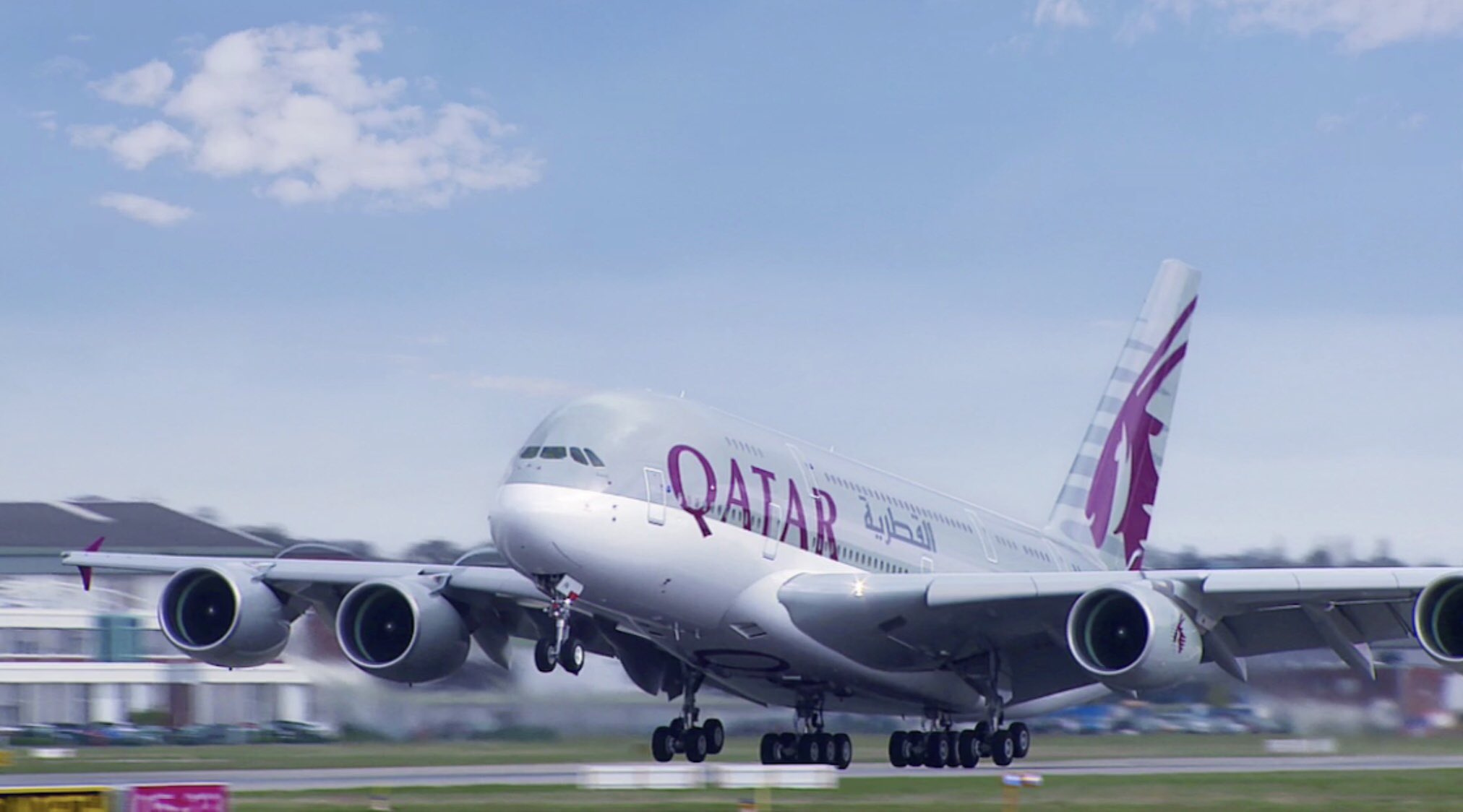Qatar Airways CEO suggested the Airbus A380 would be grounded as soon as additional aircraft deliveries were allowed.
Qatar Airways could ground its Airbus A380 aircraft when deemed time appropriate, the airlines’ CEO Akbar Al Baker confirmed on Friday, noting there is “no long-term future” for Airbus’ giant jet with the national carrier.
The national airliner called the return of the A380 a “reluctant” decision at the time, according to a report by Simple Flying, which quoted Al Baker as saying the aircraft was his “biggest mistake” and that this is the reason as to why the airline had previously dismissed the fleet.
“Due to the grounding of the A350s by our regulator and me having a shortage of capacity, my only alternative was to recommission them at a high cost […] I need the volume, and I need the capacity, but as soon as I start getting deliveries of my airplanes and we get enough capacity, we will ground [the A380s],” said the major airlines CEO.
Al Baker also revealed that obtaining spare parts for existing A380 jets is becoming more difficult as Airbus revoked the largest commercial passenger aircraft, saying: “For our information, out of the eight that we commissioned to fly, we only fly seven. We keep one spare because today, you have difficulty getting spares for them because of the supply chain. [Airbus] stopped producing them, so there is no more incentive to make spares.”
Al Baker suggested that the A380 fleet would be grounded as soon as extra aircraft deliveries enrol. Qatar Airways has over 100 aircraft due to be delivered, though none of these deliveries are possible for now.
Some 19 Airbus A350-1000 aircraft are currently outstanding, according to reports.
The A350 case is the reason why Qatar Airways is short on capacity, as it has grounded more than 20 of these aircraft over alleged safety concerns. The deliveries are unlikely to be carried out as long as the legal battle between the mega planemaker and the Gulf carrier persists in the UK high court.
In early July, Europe’s Airbus reportedly revoked Qatar Airways’ contract of a fourth A350 jet order as the airline continued to reject deliveries amid an ongoing legal dispute over surface damage on the long-haul jets, according to sources.
The airline is also eager to claim its delivery of the Boeing 777-9, the “latest iteration of the 777 family,” Simple Flying said. Boeing, however, is not expecting to deliver the first of these jets until the year 2025, though Al Baker is “keen that he takes the first one.”
The Boeing 777-8, also on order, is further down the line.
As for the Boeing 787-9, Qatar Airways has received delivery of just seven of these, leaving 23 orders outstanding.
While Boeing has failed to deliver a 787 in almost a year, it believes that deliveries will resume soon.
Al Baker pointed out that 11 of the 787s are now overdue, “assuming that these could be delivered relatively swiftly, this would presumably give the airline the capacity needed to scrap the Airbus A380,” Simple Flying noted.
Ongoing legal battle
The airworthiness of Europe’s latest long-haul jets are up for dispute between the two sides after damage to the A350s’ protective outer skin exposed gaps in lightning protection, prompting it to ground more than 20 of those jets.
Described as an “exceptionally rare” public conflict in the aviation industry, the ordeal ignited in late 2020 when Qatar Airways discovered paint erosion on 21 aircrafts as well as deterioration in the anti-lightning protection on long-haul jets, which Airbus insists do not pose a hazard risk.
The Gulf carrier is suing the European plane manufacturer in a United Kingdom court for $1 billion in damages upon grounding more than 20 out of 53 of its flawed A350s, with the value of the carrier’s claim rising by $4 million per day.
Backed by major European regulators, Airbus acknowledges quality flaws, however, denies the issues pose safety risk as, it argues, there is sufficient backup lightning protection.
With its claims backed by its own national regulator, Qatar Airways, which has ordered the A350s to be taken out of service, insists that the magnitude of safety cannot be properly understood until Airbus provides deeper technical analysis.
In a public statement, Qatar Airways argued “the impact of the condition on safety of the affected aircraft can only be established once [it] has been properly investigated and the full root cause conclusively established.”
Qatar Airways and Airbus will confront one another in a three-month trial starting in June next year over the A350 dispute.







